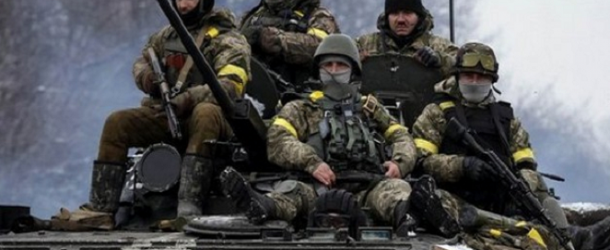”Russia must immediately stop arming the separatists in the Eastern Ukraine and start thinking about a ceasefire”. These were the words of the Ukrainian President Petro Poroshenko during his speech at the World Economic Forum in Davos.(1) It was only two days after a rocket hit a trolleybus in Donetsk killing all the civilians on board. As of January, the counter attacks by the Ukrainian armed forced have provoked region’s heavy artillery shelling by the separatists. According to unofficial estimates, the death toll among the civilians now exceeds 3 thousand people.
Although the democratically elected government vowed swift cessation of the civil war in the country, it appears that this is not going to happen in 2015. Contrary to the plans, the protraction of civil war has put already economically struggling Ukraine into an even more dire situation. Aggravated by gas supply interruptions by Ukraine’s once key energy partner – Russia – there is almost no doubt that Ukraine would default.
Considering this, under the pressure from the Ukrainian government and of course the U.S., the European Union made a decision to allocate extra Euro 1.8 billion worth of financial assistance to Ukraine. Yet it is fascinating that Ukraine was not offered any kind of option package regarding the EU membership.(2) During a press conference, last November, German Foreign Minister Frank-Walter Steinmeier explicitly stated his doubts regarding the prospects of this country’s membership to the European Union (3).
25 years after the end of the Cold War, America’s pillars of influence have shaken, impelling emergence of geopolitical risks in the region, with the Middle East and Europe being the most susceptible ones. Although the U.S. and the EU are compelled to operate jointly in terms of safeguarding international security, the parties are currently experiencing serious problems in ensuring regional security.
Distinctive involvement of British and French troops in the NATO military operations in Kosovo and Libya was welcomed by the ruling circles in the US. However, the very circles were bitterly disappointed when the same countries that America wanted to see onboard, showed lackluster performance in combatting ISIS that became an immediate threat for the Middle East.
According to unofficial sources, in 2011, France was responsible for nearly 90 percent of air sorties against the Gaddafi regime, whereas in the fights against ISIS around Iraq’s Mosul and Kobani (Ain-al-Arab) France undertook only 120 air raids. This leads to the conclusion that the European countries are now more preoccupied with own national security issues.
All the political processes that have developed in Europe in 2014 have proven that today all the European Union member nations must employ more adept and efficient action mechanisms to mitigate and prevent any real or potential threats at their borders.
Fuad SHAHBAZOV
REFERENCES
- Reuters: ”Russia has 9,000 troops in Ukraine, Poroshenko tells Davos forum” URL: http://www.reuters.com/article/2015/01/21/us-ukraine-crisis-davos-poroshenko-idUSKBN0KU1TX20150121.
- Lenta.ru: ”Еврокомиссия пообещала Украине 1,8 миллиарда евро” URL: http://lenta.ru/news/2015/01/08/eurocomission/.
- Spiegel Online: ”Frank-Walter Steinmeier about Ukraine – Russia crisis” URL: http://www.spiegel.de/international/europe/german-foreign-minister-steinmeier-on-russia-and-ukraine-a-1004891.html.
























































